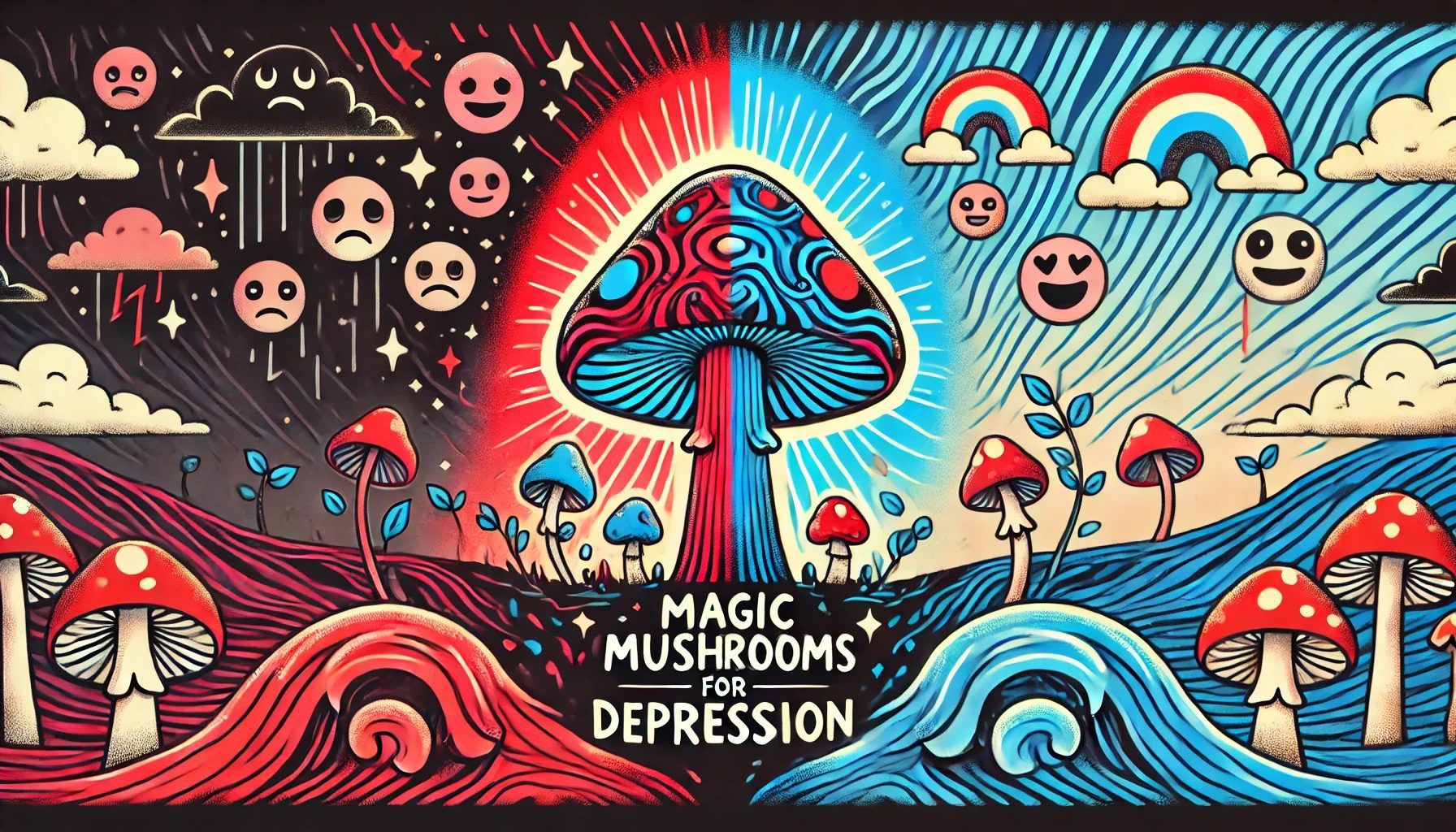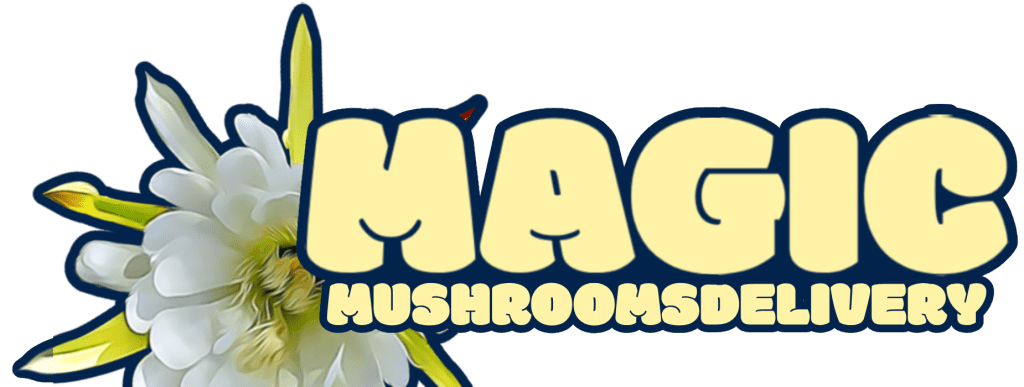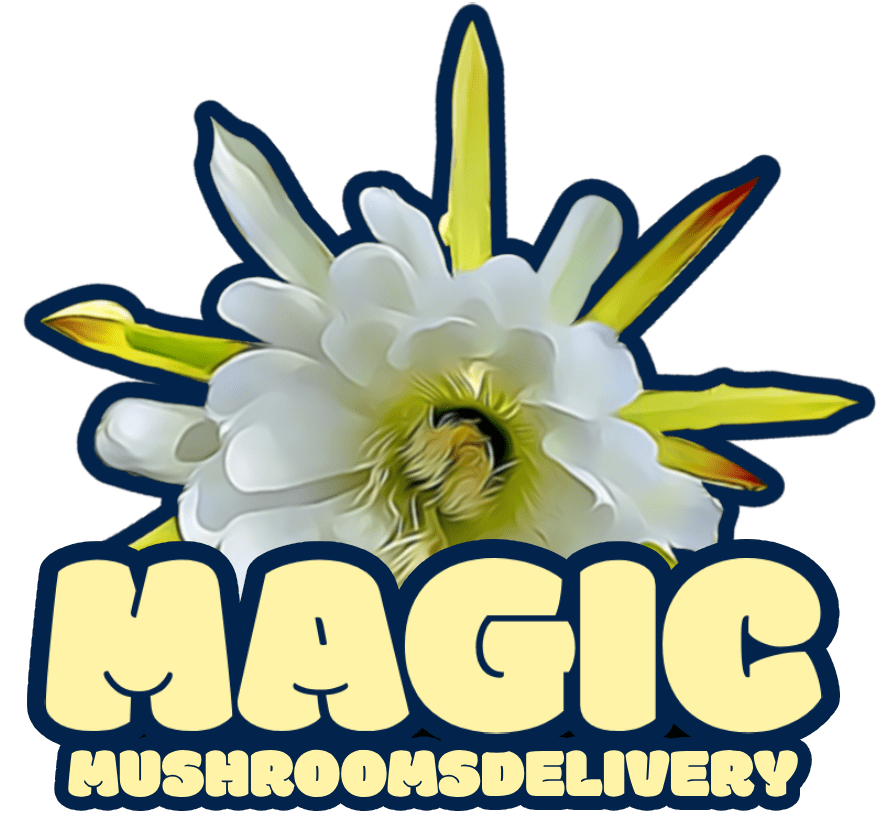

Microdosing Magic Mushrooms for Depression
Will Magic Mushrooms Cure My Depression?
Magic mushrooms, containing the psychoactive compound psilocybin, have been used for their mental health benefits in cultures worldwide for centuries. Recently, they’ve gained attention in the scientific community for their potential in treating depression, especially when other treatments have failed. Here are some key points to consider:
- Psilocybin therapy shows promise in treating depression, with rapid and long-lasting effects
- 70% of patients in a 2023 study experienced substantial improvement in depressive symptoms
- Effects can last up to a year after a single high dose
- Psilocybin works by disrupting fixed thought patterns and altering brain connectivity
- Treatment involves only one or two doses, unlike daily antidepressant medications
- Microdosing, using sub-perceptual doses, is being explored as an alternative approach
- Potential risks include mild side effects and rare cases of adverse reactions
Depression affects millions worldwide, presenting as long-term sadness, hopelessness, and loss of interest in daily activities. While traditional treatments like antidepressants and therapy work for many, they don’t help everyone. This gap has led researchers to explore alternative approaches, with psilocybin emerging as a promising candidate.
What is Psilocybin?
Psilocybin is a naturally occurring psychedelic compound produced by more than 180 species of fungi, including mushrooms belonging to the Psilocybe genus. When ingested, psilocybin is metabolized into psilocin, the compound that induces the hallucinogenic effects linked to magic mushrooms.
These mushrooms have a rich history of being used in various ceremonial and religious rituals, particularly among ancient Mesoamerican peoples. Today, psilocybin is the subject of scientific investigation for its potential to combat depression.
How Does Psilocybin Work?
Psilocybin primarily acts on the brain’s serotonin system, which is key to mood regulation. It aims to reframe thought patterns, altering mood and perception by binding to serotonin receptors, particularly the 5-HT2A receptor, and thus changing a person’s emotional state.
Research suggests that psilocybin increases connectivity between brain regions involved in emotional regulation and cognitive function. This increased connectivity may provide a way out of the rigid thought patterns often associated with depression.
Recent Clinical Trials
Recent studies have shown promising results:
- A 2023 study on psilocybin and Major Depressive Disorder found that a single high dose substantially improved depressive symptoms in 70% of patients, with effects lasting up to a year.
- A 2022 Johns Hopkins University study reported that 60% of participants with treatment-resistant depression experienced reduced symptoms after a single psilocybin session, with effects lasting at least four weeks.
- A 2021 study from Imperial College London found psilocybin-assisted therapy to be superior to escitalopram (a common antidepressant) in reducing depressive symptoms and enhancing psychological well-being.
The Therapy Process
Psilocybin-assisted therapy, often called a “mushroom healing journey,” typically occurs in a controlled therapeutic setting. The process includes:
- A comprehensive mental health assessment
- Preparation sessions
- The psilocybin session itself, which can last several hours
- Integration sessions to help patients process their experiences and apply insights to daily life
During the psilocybin session, patients are in a relaxed environment, often with an eye mask and soft music. A trained professional guides them through the experience, helping navigate physical and emotional sensations.
How To Microdose Mushrooms For Depression
Microdosing involves taking sub-perceptual doses of psilocybin, typically 1/10th to 1/20th of a regular dose. While research on microdosing is still in its early stages, some people report improvements in mood, creativity, and focus. Here’s a general guide on how to microdose magic mushrooms for depression:
- Consult a healthcare professional: Always consult with a doctor before starting any new treatment, especially if you’re currently on medication.
- Source and prepare: Obtain psilocybin mushrooms from a reliable source. Dry the mushrooms and grind them into a fine powder.
- Determine your dose: A typical microdose is 0.1 to 0.3 grams of dried mushrooms, but this can vary based on individual factors.
- Create a schedule: A common schedule is to take a microdose every three days. For example:
- Day 1: Microdose
- Day 2: Observe effects
- Day 3: Rest day
- Day 4: Microdose again
- Monitor effects: Keep a journal to track your mood, energy levels, and any side effects.
- Adjust as needed: If you don’t notice any effects, you may gradually increase your dose. If you experience any unwanted effects, reduce the dose.
- Combine with therapy: For best results, combine microdosing with regular therapy sessions.
Remember, while microdosing is gaining popularity, it’s not yet fully understood or regulated. Always prioritize safety and legality.
The Best Mushroom Strains for Depression
Here are 3 of the best magic mushroom strains for managing depression as per reviews from Canadians.
AMAQ 17
Amaq 17 is a potent strain of psilocybin mushrooms often used in microdosing. These mushrooms are known for their ability to promote mood stabilization and cognitive clarity, making them effective for individuals managing depression. The microdose typically provides a subtle, but noticeable uplift in mood and energy levels, while also promoting creative thinking and emotional regulation. Regular use of Amaq 17 may support mental well-being by enhancing emotional resilience and providing relief from the overwhelming feelings associated with depression.
yak
Yak mushrooms are another strain that is gaining attention for its effects on mental health, particularly in depression management. Known for their balanced and calming effects, Yak mushrooms can help reduce anxiety, lift mood, and increase mental clarity. They are considered less intense than some other strains, making them suitable for those who may be looking for more manageable, therapeutic doses to alleviate depressive symptoms. Users often report a sense of relaxation, enhanced perception, and a reduction in negative thinking.
Penis Envy
Penis Envy is one of the most potent psilocybin mushroom strains, often recommended for those looking for deeper, transformative experiences. Its strong effects make it a popular choice for individuals suffering from depression who are seeking profound emotional healing. Penis Envy mushrooms can help facilitate deep introspection, allowing users to confront and process their emotions. The intense, sometimes overwhelming effects can help break through mental barriers, offering an opportunity for personal growth and relief from depression. However, due to its potency, it’s best used with caution or under the guidance of a therapist.
See all the magic mushroom strains that help with depression here.
Potential Risks and Considerations
While promising, psilocybin therapy isn’t without risks. Common side effects include nausea, dizziness, and temporary anxiety or paranoia. More serious risks, though rare, can occur in individuals with a history of psychosis or severe mental health issues. There’s also the potential for “bad trips,” emphasizing the importance of professional supervision.
Canadian Schools Studying Psilocybin for Depression
Several top-notch colleges in Canada are researching psilocybin and how it might be used as a therapy for conditions such as depression:
- University of Toronto: The Psychedelic Studies Research Program at the University of Toronto is advancing the understanding of psilocybin by diving deep into its mechanisms of action. Their groundbreaking research explores how this compound interacts with brain function, aiming to unlock its potential for therapeutic applications in mental health and cognitive enhancement.
- McGill University: McGill University is pioneering the field of psilocybin research, specifically focusing on treatment-resistant depression. Their studies investigate psilocybin’s effectiveness when used as an adjunct to psychotherapy, offering hope to patients who have exhausted other treatment options.
- University of British Columbia (UBC): UBC is actively studying the effects of psilocybin on depression and anxiety. Their research includes exploring the compound’s potential in easing the psychological distress of patients facing end-of-life care, providing new insights into mental health treatments.
- Centre for Psychedelic Studies (Toronto): The Centre for Psychedelic Studies, in collaboration with partners like Ryerson University and the University of Toronto, is leading efforts to explore psilocybin as a potential therapeutic medicine. Their work focuses on how psilocybin can be harnessed for clinical use, with promising results for a variety of mental health conditions.
These institutions are at the forefront of changing our understanding and use of psilocybin to transform mental health treatment in Canada and abroad.
The Future of Depression Treatment?
As research continues, psilocybin therapy may become a key player in psychiatric treatment. Its rapid and long-lasting effects, coupled with the need for only one or two doses in full-dose therapy, make it an attractive option, especially for treatment-resistant depression. The growing interest in microdosing also opens up new avenues for research and potential treatment options.
However, it’s crucial to remember that psilocybin therapy, whether full-dose or microdosing, should only be conducted under professional supervision or guidance. If you’re interested in exploring this treatment, consult with a healthcare practitioner and consider participating in an approved clinical trial or seeking therapy through professional channels.
As our understanding of psilocybin grows, it may offer new hope for those struggling with depression, potentially transforming the landscape of mental health treatment. Whether through full-dose therapeutic sessions or carefully monitored microdosing regimens, psilocybin could provide a powerful tool in the fight against depression.
Tommy Lee
Table of Contents
Canada’s Mushroom Dispensary
Calgary
We deliver magic mushrooms same day in Calgary. Enjoy quick delivery within 60 minutes anywhere within city limits between 10am and 9pm daily.
Canada
Canada's magic mushroom delivery service. We bring shrooms to your place in 1 - 4 days depending where you are in Canada. Shrooms near me? We have you covered.
Be first on the list to get notified about our sales, new genetics and drops before they sell out!

